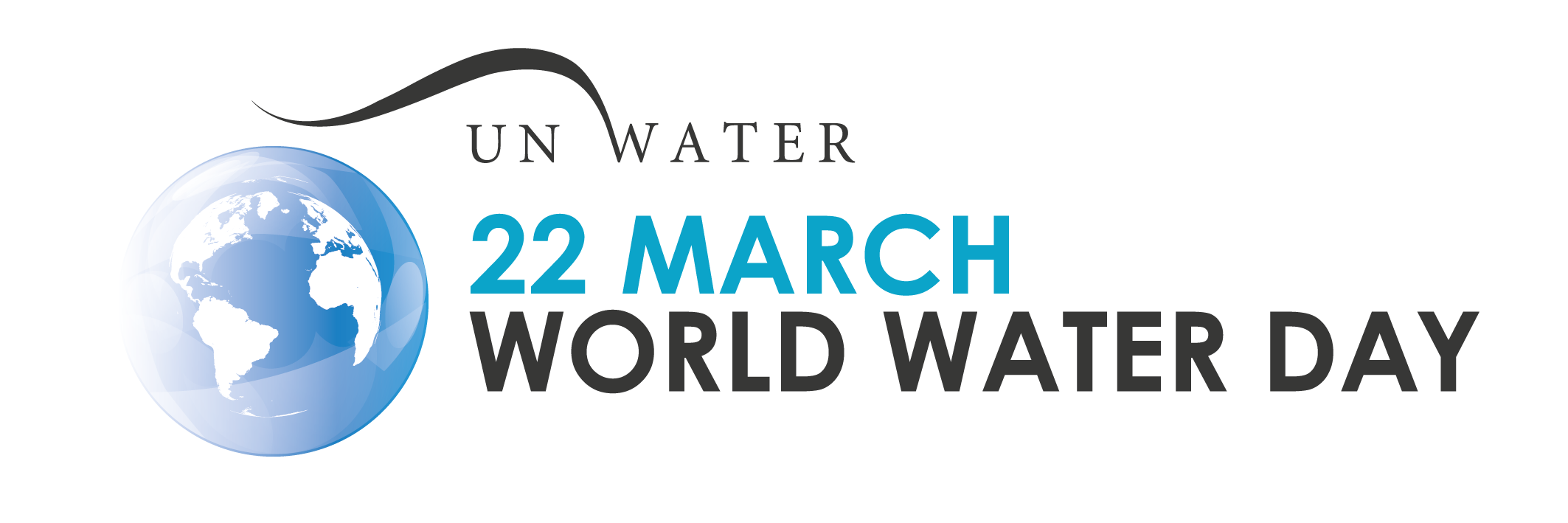World Water Day
 World Water Day is an international observance and an opportunity to learn more about water related issues, be inspired to tell others and take action to make a difference. World Water Day dates back to the 1992 United Nations Conference on Environment and Development where an international observance for water was recommended. The United Nations General Assembly responded by designating 22 March 1993 as the first World Water Day. It has been held annually since then.
World Water Day is an international observance and an opportunity to learn more about water related issues, be inspired to tell others and take action to make a difference. World Water Day dates back to the 1992 United Nations Conference on Environment and Development where an international observance for water was recommended. The United Nations General Assembly responded by designating 22 March 1993 as the first World Water Day. It has been held annually since then.
Today, 1.8 billion people use a source of drinking water contaminated with faeces, putting them at risk of contracting cholera, dysentery, typhoid and polio. The Sustainable Development Goals, launched in 2015, include a target to ensure everyone has access to safe water by 2030, making water a key issue in the fight to eradicate extreme poverty.
World Water Day - Theme for 2024
The theme of World Water Day 2024 is "Water for peace".
Water can create peace or spark conflict. When water is scarce or polluted, or when people have unequal, or no access, tensions can rise between communities and countries. More than 3 billion people worldwide depend on water that crosses national borders. Yet, only 24 countries have cooperation agreements for all their shared water. As climate change impacts increase, and populations grow, there is an urgent need, within and between countries, to unite around protecting and conserving our most precious resource. Public health and prosperity, food and energy systems, economic productivity and environmental integrity all rely on a well-functioning and equitably managed water cycle.
Creating a positive ripple effect
When we cooperate on water, we create a positive ripple effect – fostering harmony, generating prosperity and building resilience to shared challenges. We must act upon the realization that water is not only a resource to be used and competed over – it is a human right, intrinsic to every aspect of life. This World Water Day, we all need to unite around water and use water for peace, laying the foundations of a more stable and prosperous tomorrow.
Water Facts
- 2.2 billion still live without safely managed drinking water, including 115 million people who drink surface water. (WHO/UNICEF, 2023)
- Roughly half of the world’s population is experiencing severe water scarcity for at least part of the year. (IPCC, 2022).
- Water-related disasters have dominated the list of disasters over the past 50 years and account for 70 per cent of all deaths related to natural disasters (World Bank, 2022).
- Transboundary waters account for 60 per cent of the world’s freshwater flows, and 153 countries have territory within at least 1 of the 310 transboundary river and lake basins and inventoried 468 transboundary aquifer systems (UN-Water, 2023).
- Only 24 countries report that all their transboundary basins are covered by cooperation arrangements. (UN-Water, 2021).
Take a Water pledge
- Save water: Take shorter showers and don’t let the tap run when brushing my teeth, doing dishes and preparing food.
- Eat local: Buy local, seasonal food and look for products made with less water.
- Break taboos: Talk about the critical connection between toilets, water and menstruation.
- Be curious: Find out where my water comes from and how it is shared, and visit a treatment plant to see how my waste is managed.
- Make it equal: Share water-fetching between women and men, girls and boys.
- Protect nature: Plant a tree or create a raingarden – use natural solutions to reduce the risk of flooding and store water.
- Flush safe: Fix leaking water and waste pipes, empty full septic tanks and report dumping of sludge.
- Build pressure: Write to my elected representatives about budgets for improving water at home and abroad.
- Stop polluting: Don’t put food waste, oils, medicines and chemicals down my toilet or drains.
- Clean up: Take part in clean-ups of my local rivers, lakes, wetlands or beaches.
Source : UN Water
Related Resources
Last Modified : 3/22/2024
This topic provides information related to Atal Bh...
This topic provides information about the World We...
Provides information about Wetlands of India Porta...
This topic provides information about low carbon l...
